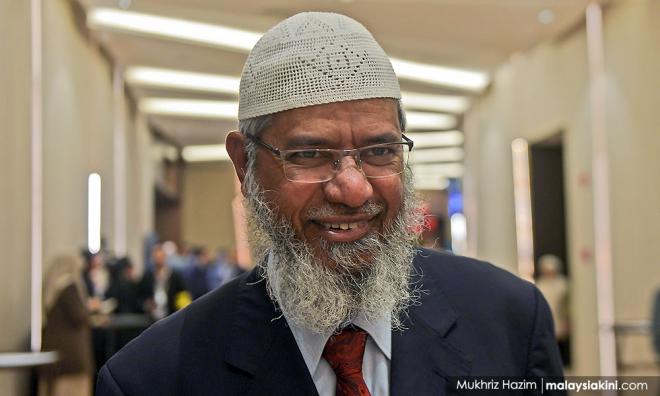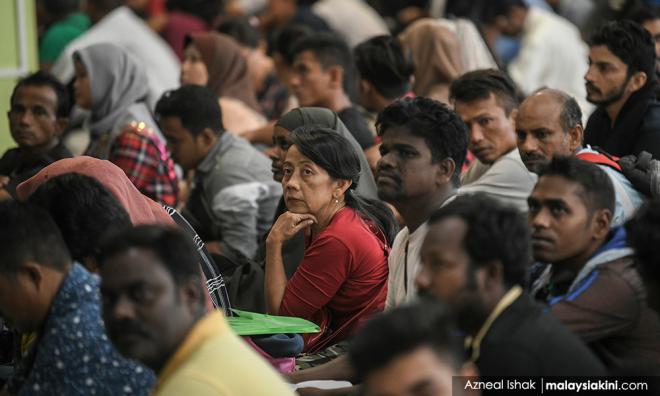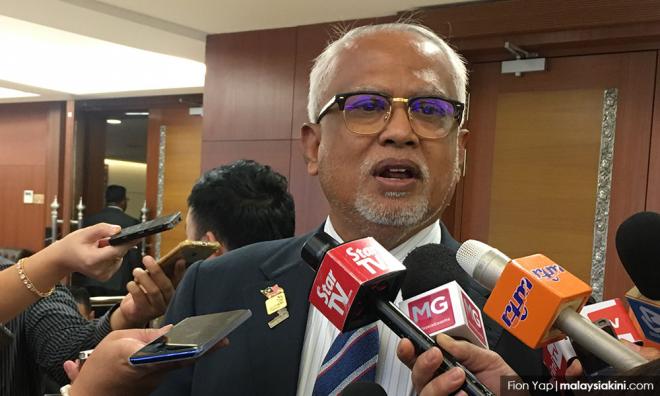The year 2019 will generally be remembered for its supine political leadership, broken promises, compounded race/religion rhetoric, incitement and provocation, and shattered hopes.
Amid all this dust and depression, 2019 will surely be remembered as the year when women led the way — whether in sports, politics, administration of justice, law enforcement or national unity.
This year marked the graceful retirement of Nicol David from competitive squash. Her seamless transition from the world‘s greatest female squash player into the role of an enabler, motivator, ambassador and most of all, a young “elder stateswomen” of her sport may be taken as a guide for those who overstay their positions in the mistaken belief that they and only they can “do the job”.
On the political front, female ministers have also shown the way. Teresa Kok showed the rest on how to focus on one’s own ministry; to understand the challenges and to attempt to overcome the obstacles in its path.
Acquiring a home has been a great challenge to Malaysians generally. A roof over one’s head is becoming increasingly unattainable while housing developers are making inordinate profits. For long, housing developers have been abusing the phrase “affordable housing”.
That catch-phrase has been used even where prices were well out of the reach of the common man. I recall in one instance where houses costing RM600,000 were described as “affordable housing”.
Into this scenario marched Zuraida Kamaruddin. In one fell swoop, the ceiling price on “affordable housing” was brought down to RM300,000. In fact, she caused shivers within the developers’ community when she stated that it was possible to provide reasonable houses at not more than RM150,000.
Zuraida knew that most state governments owned tracts of land on which really affordable houses could be constructed. This would be possible if state governments took a more “egalitarian”, rather than a “business-like”, approach in their dealings. Lamentably, many state governments conduct their affairs as if they are profit-oriented bodies.
In May 2019, our first female chief justice was appointed. The legal fraternity welcomed her with joy and great relief; we just could not take any more of the “same old, same old”. Even from her days in the High Court, Justice Tengku Maimun Tuan Mat had displayed the qualities of judicial courage and independence, reminiscent of a forgotten era in our administration of justice.
At her elevation, Tengku Maimun remarked that she wished to improve the image of the judiciary. Truth be told, she does not have much to do except to continue to be herself. As they say, morale filters from the top. It would surely take some time but given the probable length of her tenure, the administration of justice in our country is headed for better days.
To top it all, for the first time, we now have six women as judges in our apex court. They have already begun deciding cases without fear or favour; a clear example being Justice Nalini Pathmanathan’s lucid judgment on the extent and ambit of “the public servant”.
The appointment of Latheefa Koya as head of the Malaysian Anti-Corruption Commission was yet another high-water mark. Her detractors tried very hard to derail her: finding fault with the manner of her appointment right down to the manner she wore the rank badges and ribbon bars.
The nation was not impressed with her critics and the tough-as-nails Latheefa was undaunted. Her public pronouncements on the war on corruption sent shivers down the spines of the guilty.
However, it must be admitted that Latheefa has a most unenviable job. It is not easy to undo a culture of corruption that has ingrained itself into the national psyche over the last three decades. Despite the massive challenges and knowing that the ordinary reasonable Malaysian is with her, Latheefa has continued in her mission with fearless consistency, in a manner and style that has put other enforcement bodies in the shade.
Latheefa may want to persuade the government to pass legislation in the nature of the British-like Unexplained Wealth Order (UWO) to compel disclosure of unexplained wealth, where the issuance of such orders would have to be by the High Court and the subsequent seizure of the unexplained assets, if at all, would also have to be by way of a court order.
The UWO has two great advantages: the information obtained in the context of a UWO cannot be used in criminal proceedings and, in any event, at all stages, there would be judicial supervision.
I would be remiss if I fail to mention Dr Siti Hasmah Mohamad Ali in this appreciation of women leaders. Though she had served as wife of the prime minister before, some did not fully appreciate her role then. Our recent experiences have taught us well.
Siti Hasmah has reminded, indeed re-educated, everyone on the dignity and respect of the person (not “office”) of the spouse, our prime minister. Her leadership lessons have not been lost on us.
Finally, the icing on the collective cake of all Malaysians must surely be our current Queen, Tunku Azizah Maimunah Iskandariah. In our country, over which the threat of being torn asunder by politicians hangs, she has been a beacon of hope.
Her frank sharing of her Chinese heritage, which was courageous, must have irked the political beings who seek to divide and rule. Her simple, down-to-earth style, from her dance moves through her Twitter to her train ride, have earned the affection and respect of most Malaysians.
This song of praise would not be complete if I did not address the leaders of my gender. Other than a few exceptions, our male leaders have failed our nation miserably. There is so much to be done to improve the state of our nation but positive energies seem to be expanded on negative undertakings. The real state of our nation needs no reminder or repetition.
While this is not designed to be a battle between the sexes, the men have to get their act together and show greater will, desire and gumption to keep up with the women.
Happy New Year Malaysia.
Watson Peters, a lawyer for more than three decades, is a reader of FMT.









 Sound religious discourse is the responsibility not just of religious leaders, but of the education sector, when it educates the youth on the ideals of religious harmony.
Sound religious discourse is the responsibility not just of religious leaders, but of the education sector, when it educates the youth on the ideals of religious harmony.

 Politicians must remember that the welfare of Malaysians and the country’s economy are more important than intervening in the internal affairs of other countries. This policy has to be written in our book of diplomacy and adhered to by all politicians.
Politicians must remember that the welfare of Malaysians and the country’s economy are more important than intervening in the internal affairs of other countries. This policy has to be written in our book of diplomacy and adhered to by all politicians.



